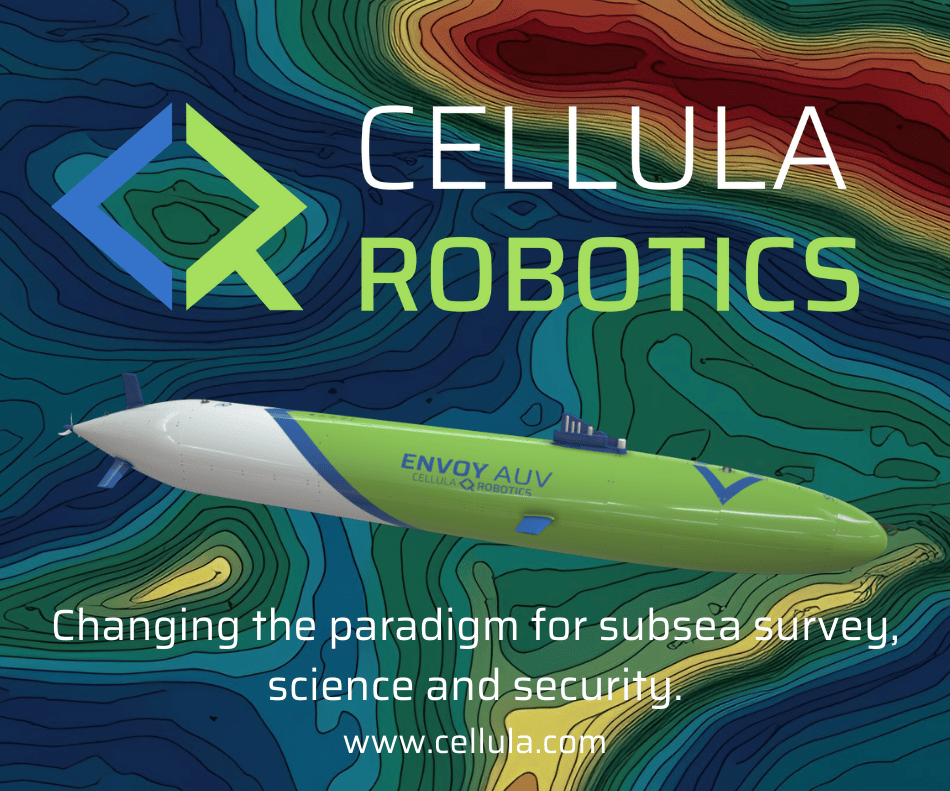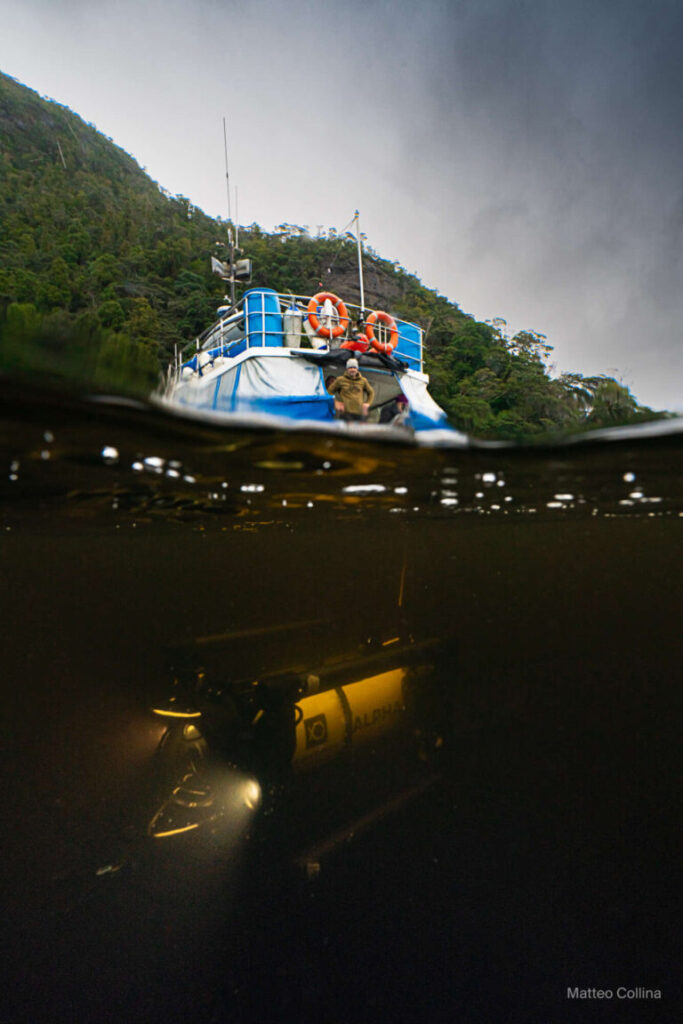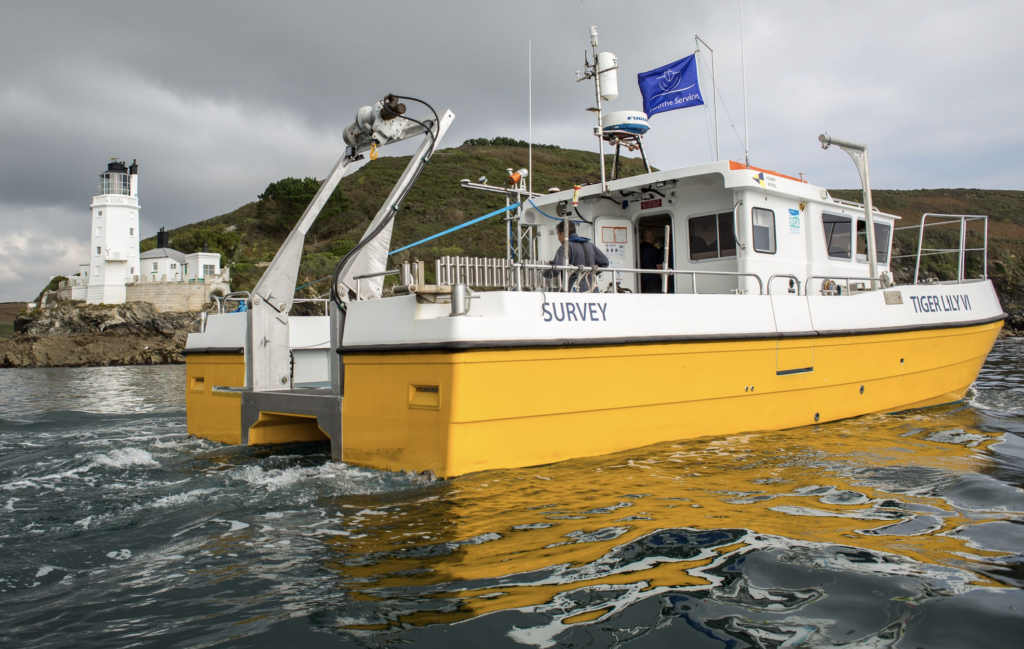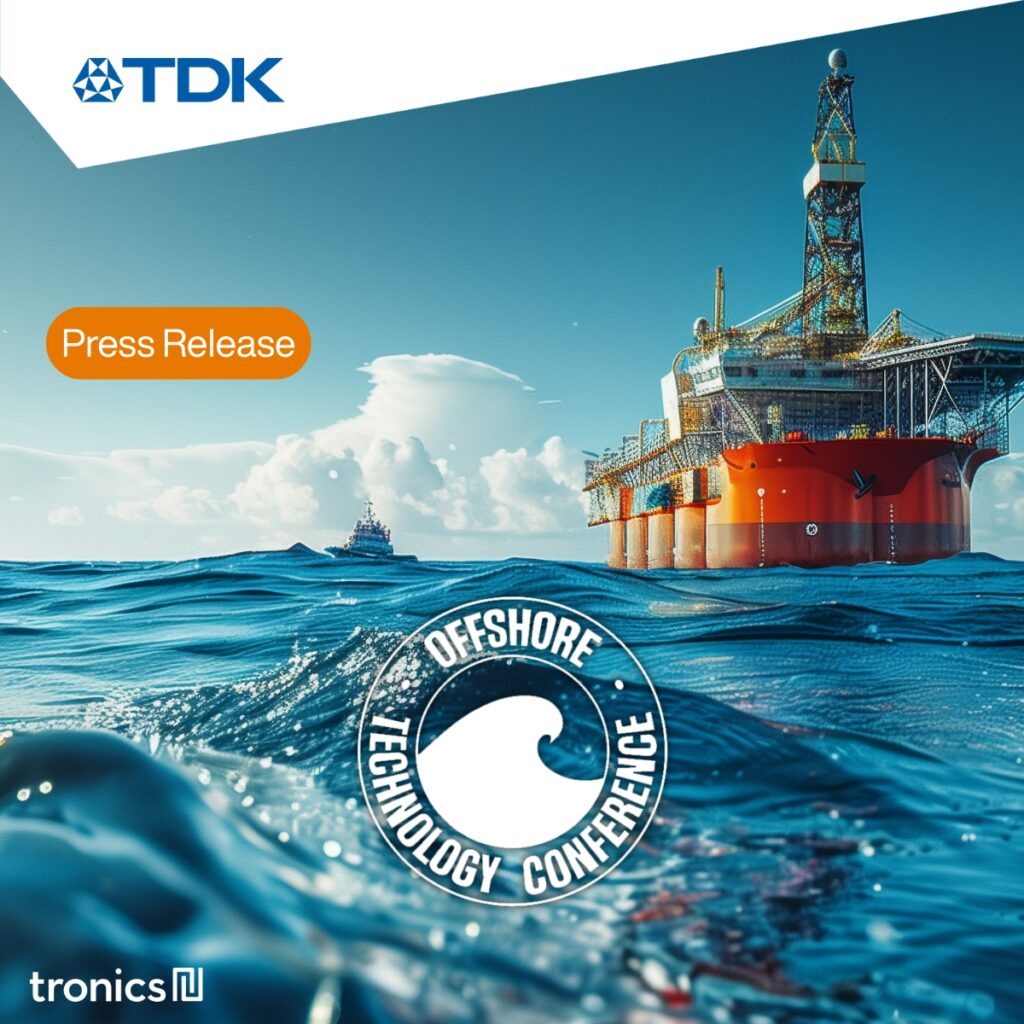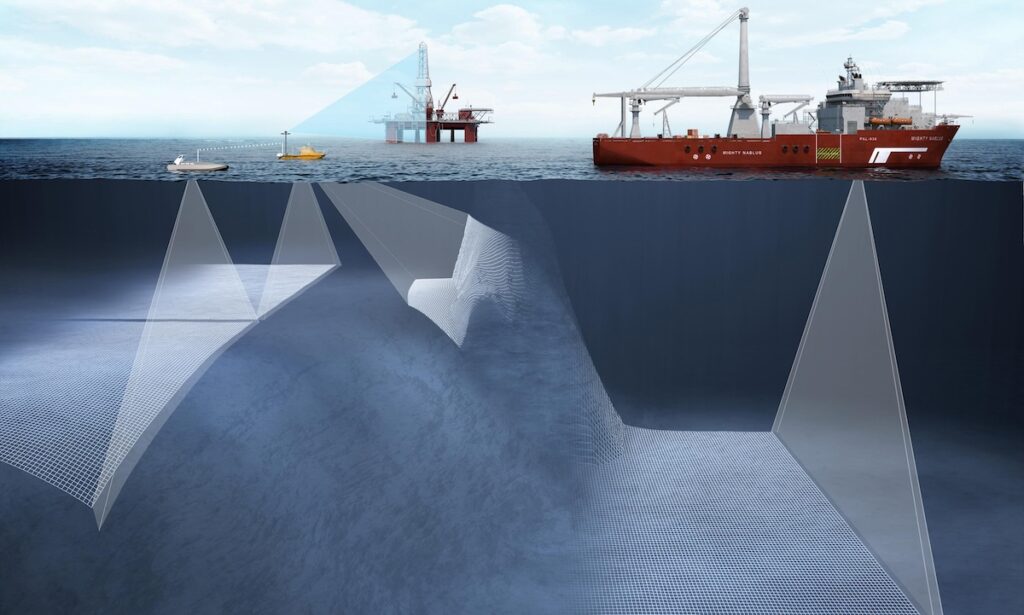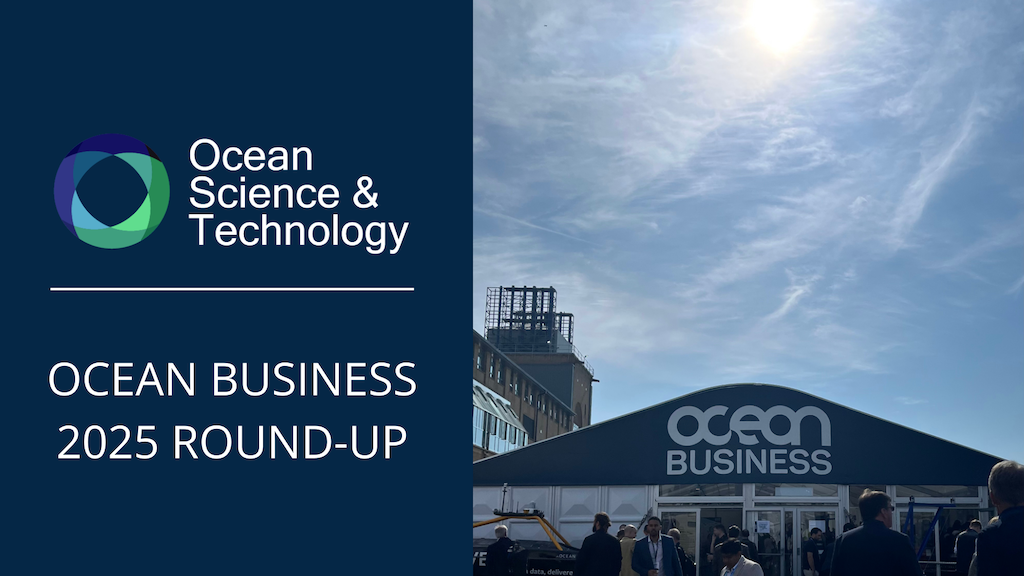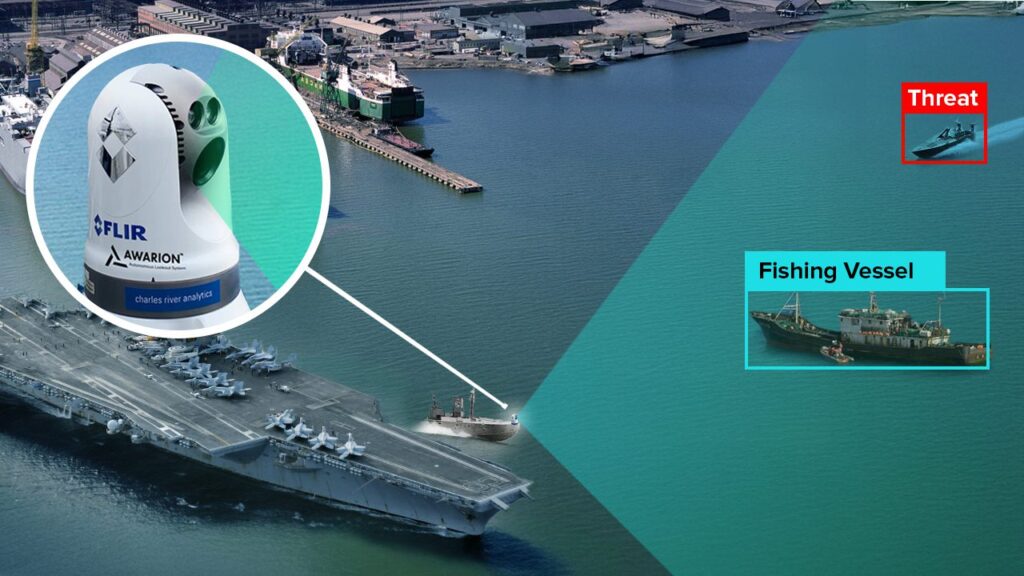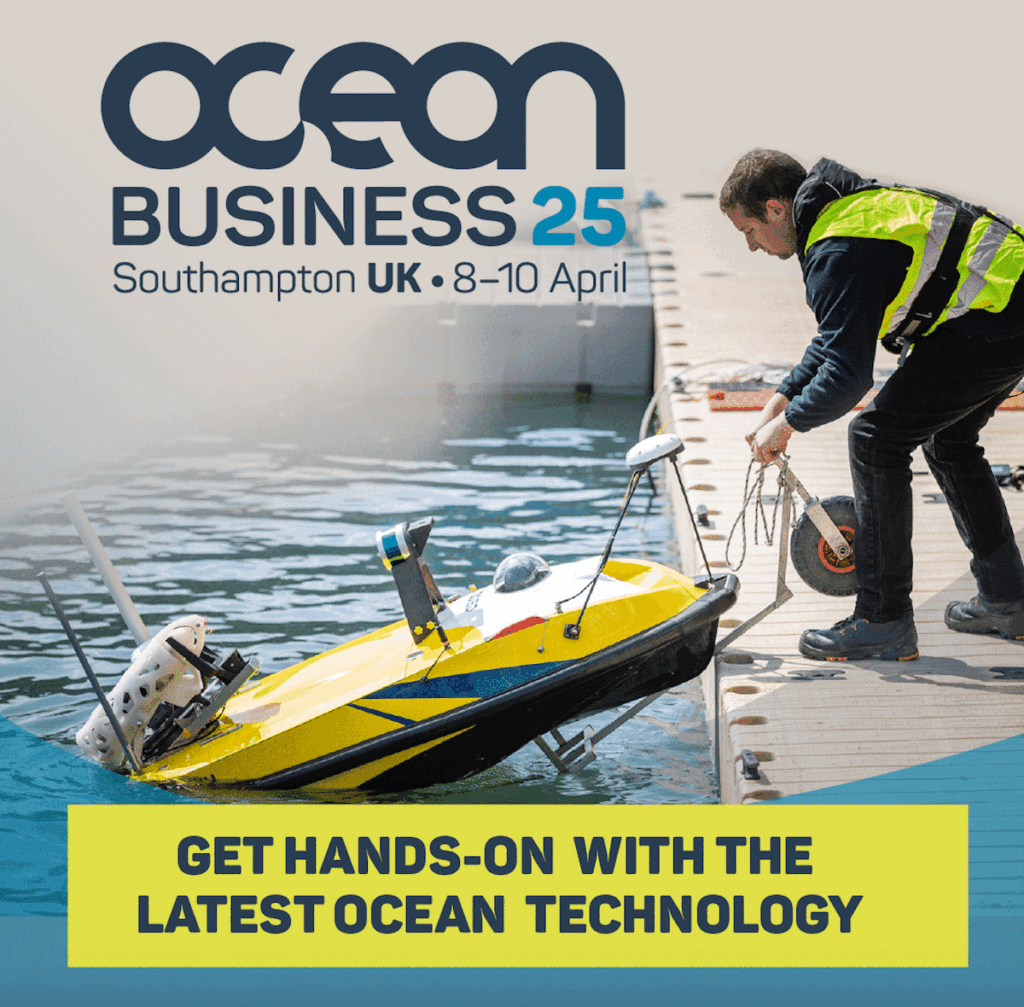
Connect with Leading Marine Technology Innovators
Discover cutting-edge solutions from leading global suppliers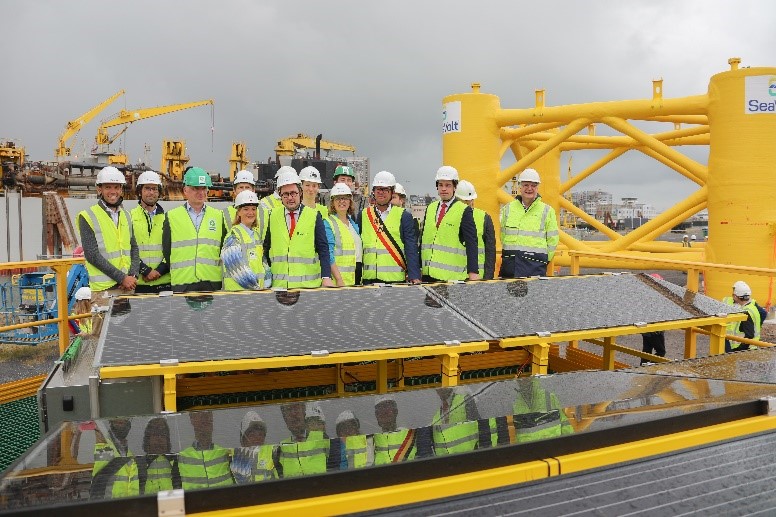
SeaVolt, a collaboration between Tractebel, DEME, and Jan De Nul, has confirmed that its first floating solar energy test platform will shortly be ready to install offshore. The platform flotation system is currently located in the port of Ostend, on the Belgian North Sea coast, where main contractor Equans is finalizing assembly. The test platform will be the first installation in the Belgian North Sea aimed at the large-scale development of offshore solar energy and is scheduled to be towed offshore, anchored, and put into operation to gather data for at least a year starting in August.
SeaVolt has developed a concept that is unlike existing floating solar installations on lakes, and is specifically tailored to the conditions of rough seas. With its modular design, this technology is highly suitable for installation as a complement to offshore wind farms.
Under the framework of the Blue Cluster funded research project MPVAQUA and additional support from the federal government via BELSPO, the partners within SeaVolt together with Ghent University (UGENT) are ready to conduct a year-round open-sea testing inside the POM-West Vlaanderen owned ‘Blue Accelerator offshore test zone’. This proof-of-concept installation will gather crucial data on the impact of waves, rain and salt sprays on various solar panels with different PV panel configurations. In addition, the impact of varying inclinations, caused by waves and wind, on the energy output will be closely monitored. The test aims to determine the level of protection required to shield the solar panels from seawater and bird droppings.
Amongst other materials suitable for this floating technology, SeaVolt has chosen to use novel light-weight carbon fiber material in this test installation. This material presents potential benefits for offshore use, but to date has not been widely used in such harsh marine conditions.
Optical embedded fibers and sensors attached to the structure will assess if the effects on structural integrity of the material due to vibrations and fatigue is in line with the numerical models and results obtained from the ocean wave tank and wind tunnel tests. Since the floating structure and solar panels are driving the cost, these measurements are indispensable for further financial assessment.
In addition to technical tests, the SeaVolt test installation will also address ecological aspects. Various materials will be evaluated based on prevention of adverse effects on the marine environment. The test results will determine the selection of materials for further development. It is important not only to minimize the attachment of excessive marine growth to the floater to maintain its buoyancy. Lastly, specific tests will be conducted to assess combining the floater systems with mussel cultivation and oyster farming, which present specific challenges.
This crucial test, targeting all aspects of SeaVolt technology to develop a reliable, cost-efficient, and sustainable solution, will be the first installation in the Belgian North Sea aimed at the large-scale development of offshore solar energy. Since this test is only containing a few solar panels for a rather large floater construction, it is not to be seen as a first prototype of the full scale. It is rather a laboratory to gain knowledge and push the technological development further. The expectations for this new application of solar energy are high. Offshore solar energy provides an additional opportunity to produce local green energy. Combined with offshore wind, it aligns with the strategy of multi-use sites and can optimize the use of existing electrical infrastructure.
The significant potential of offshore solar energy is also recognized internationally. It has captured the attention of the European Green Deal plans, with an announcement by the Dutch government to have 3 GW of offshore solar energy in operation by 2030, and concrete projects under development up to 100 MW. Technology development is essential to achieve these ambitions. With this offshore test, SeaVolt is taking the critical initial step to further advance large-scale marine floating solar energy.
Meanwhile, ecological research and economic research is ongoing amongst others covering future LCOE evolutions analysis. To ensure further development, Seavolt is preparing for a large-scale demonstration project within an offshore wind farm. As such the potential of integrating offshore floating solar inside an offshore windfarm will be further assessed. If all goes well, large scale offshore solar energy is expected to become a reality and in this case, Seavolt hopes to secure a significant share in this new development of the already strong Belgian offshore sector.
Philippe Van Troeye, CEO of Tractebel, commented: “While we are convinced that offshore solar has an important role to play in the accelerated energy transition, technological development is often seen as a bottleneck for unlocking the full potential of this exciting market. With SeaVolt, and more specifically with this cutting-edge test nearing completion, we’ll be able to observe how such an installation behaves under real-life conditions, providing us with the necessary knowledge to mature and mitigate risks for future developments. I am extremely proud that, together with our partners, we took up the challenge of combining technical and environmental research from day one. With this approach we believe we can reach beyond the typical goal of decarbonization, aiming for nature-friendly and eventually even nature-boosting installations.”
Julie De Nul, CEO of Jan De Nul Group, stated: “We are thrilled to launch the SeaVolt technology, which represents the culmination of years of hard work and innovation in offshore PV technology together with our partners. As we enter the offshore test phase, we are excited to see what this technology will become. The floating solar energy test platform is a crucial step in developing a reliable and sustainable solution. It serves as a laboratory to gain knowledge and push the technological development further. We believe SeaVolt has the potential to play a crucial role in optimising the use of space on the sea by complementing offshore wind farms. We are excited to shape the future of renewable energy and contribute to a more sustainable future.”

